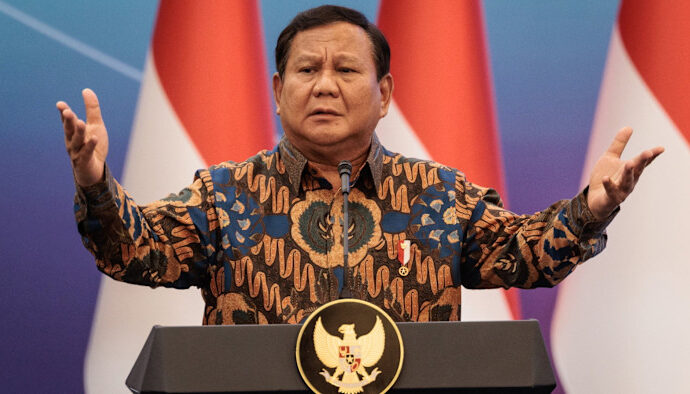Unlock the White House Watch newsletter for free
Your guide to what Trump’s second term means for Washington, business and the world
The US and China discussed a possible extension to the ceasefire in their trade war that hinges on Donald Trump’s approval, Treasury secretary Scott Bessent said after two days of talks in Stockholm.
Bessent, speaking in the Swedish capital, denied a report from earlier in the day that the two sides had agreed to extend the tariff truce by 90 days, saying it was only one option for the president.
He and US trade representative Jamieson Greer would brief the US president on Wednesday about the proposal and the contours of the Stockholm discussions, the Treasury secretary added.
China’s deputy commerce minister Li Chenggang told Chinese media after the talks had concluded that the two sides had held “candid and constructive exchanges” and would “continue to promote the extension of the 24 per cent reciprocal tariffs that the US had suspended, as well as the extension of China’s retaliatory tariffs”.
Bessent also said the talks were “very constructive”. The meeting followed two previous rounds of negotiations, in Geneva — where the tariff ceasefire was agreed — and in London.
Trump said that Bessent had told him that the meeting with the Chinese was “very good” and that the outcome would be “probably pretty good”. He was speaking to reporters on Tuesday as he flew back from Scotland on Air Force One.
“They are going to brief me tomorrow. We’ll either approve it or not. But he felt very good about the meeting. Better than he felt yesterday,” the president said. “Yesterday I said, ‘Ooh, here we go again, here we go again’. But today it worked out very well. I think the result is probably pretty good.”
Li said the two sides’ trade teams “conducted comprehensive and in-depth exchanges on the macroeconomic conditions in both countries” and would continue to maintain close communication.
Earlier this year, Trump increased US tariffs on imports from China to 145 per cent, triggering a retaliatory rate of 125 per cent from Beijing. In May, US and Chinese negotiators met in Geneva and agreed a 90-day ceasefire that included reducing their “reciprocal” tariffs to allow the countries to work on a more comprehensive trade deal.
While Bessent said the US and Chinese teams did not discuss a possible summit between Trump and President Xi Jinping, Trump told reporters on Air Force One that he thought the two leaders would meet before the end of the year.
“He wants to meet and I look forward to the meeting too,” he said.
The Financial Times reported this week that the Trump administration had taken several actions that were partly designed to improve the chances of the two leaders holding a meeting.
The commerce department has been told to freeze new export controls on China to avoid provoking Beijing.
The administration also blocked Taiwan’s President Lai Ching-te from transiting through New York on his way to Central America, a move that came after the Chinese embassy in Washington had raised concerns about the visit.
Bessent said US tariffs on China would “boomerang” back up to a higher level if Trump does not agree to an extension. “The Chinese deputy minister did say that we had agreed on a pause. We have not. Nothing has agreed until we speak with President Trump,” Bessent told reporters at a press conference in Stockholm.
He said the US had “great momentum” going into the third round of trade talks with China because of the deals Trump had negotiated with other countries, particularly the agreement with Japan. Bessent said that enabled a “wide-ranging discussion” between the two trade delegations.
He said he and Greer raised concerns with Chinese vice-premier He Lifeng and his team about the country’s manufacturing overcapacity and also its provision of dual-use technologies to Russia.
Bessent said the two sides also discussed the export of rare earth magnets from China to the US, which have resumed. Following the Geneva meeting, the Chinese had cut off the export of rare earths and magnets after the US imposed technology export controls.
Additional reporting by Lauren Fedor in Washington


